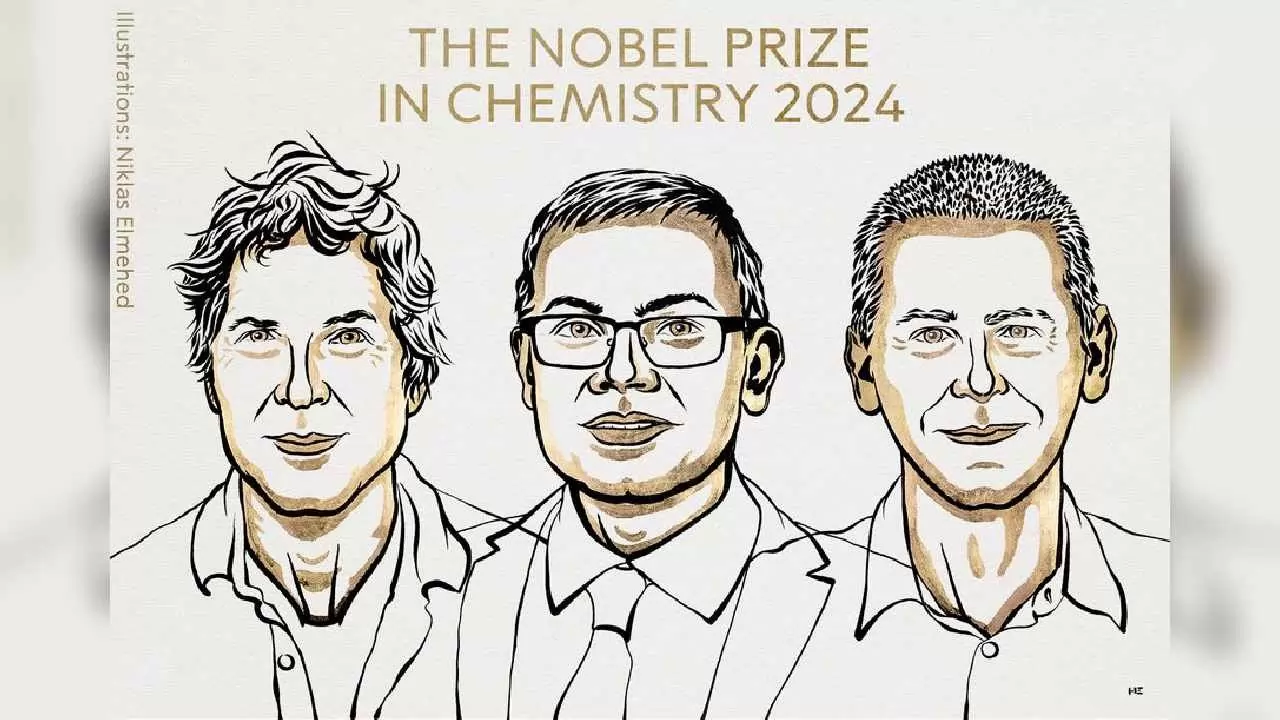
Nobel Prize in Chemistry 2024 (X/NobelPrize)
Nobel Prize in Chemistry 2024: The Royal Swedish Academy of Sciences has awarded the 2024 Nobel Prize in Chemistry to three pioneering scientists for their groundbreaking work in the field of protein research. One-half of the prize has been awarded to David Baker for his advancements in "computational protein design," while the other half is shared between Demis Hassabis and John M. Jumper for their achievements in "protein structure prediction."
David Baker, a professor at the University of Washington, achieved a major scientific breakthrough in 2003 by designing a completely new protein, unrelated to any known protein in nature. His work with proteins—large, complex molecules made up of amino acids—has led to innovative designs with significant applications in medicine and biotechnology. Proteins, formed by linking together chains of 20 different types of amino acids, have their structure and function dictated by their specific sequence. Baker’s research has paved the way for designing novel proteins that can carry out specific, targeted tasks.
Following the announcement of his Nobel win, Baker expressed his excitement and honor to receive the award, saying, "he is very excited and honoured."
BREAKING NEWS
— The Nobel Prize (@NobelPrize) October 9, 2024
The Royal Swedish Academy of Sciences has decided to award the 2024 #NobelPrize in Chemistry with one half to David Baker “for computational protein design” and the other half jointly to Demis Hassabis and John M. Jumper “for protein structure prediction.” pic.twitter.com/gYrdFFcD4T
In 2020, Demis Hassabis and John Jumper, both associated with Google DeepMind, created a monumental shift in protein research with their development of AlphaFold2, an AI model capable of predicting the structure of nearly all 200 million known proteins. This breakthrough allows researchers to understand protein structures with unprecedented speed and accuracy, a task that previously took years or even decades to accomplish through traditional laboratory methods.
Hassabis, the CEO of Google DeepMind in London, and Jumper, a Senior Research Scientist at DeepMind, have been lauded for their contributions to the advancement of artificial intelligence and its integration with biological research.
The announcement was made in Stockholm, during the ongoing Nobel Week, which celebrates achievements across six distinct fields, as outlined in Alfred Nobel’s will. Chemistry holds a special place in Nobel’s legacy as the second prize category mentioned in his will. Nobel himself was deeply connected to the field of chemistry, with his inventions and industrial processes rooted in chemical principles.
Earlier in the week, the Nobel Prize in Physics was awarded to J. Hopfield and Geoffrey E. Hinton for their pioneering work in artificial intelligence and neural networks. Additionally, the Nobel Prize in Medicine was presented to Victor Ambros and Gary Ruvkun for their discovery of microRNA and its role in gene regulation.





Copyright © 2025 Top Indian News
